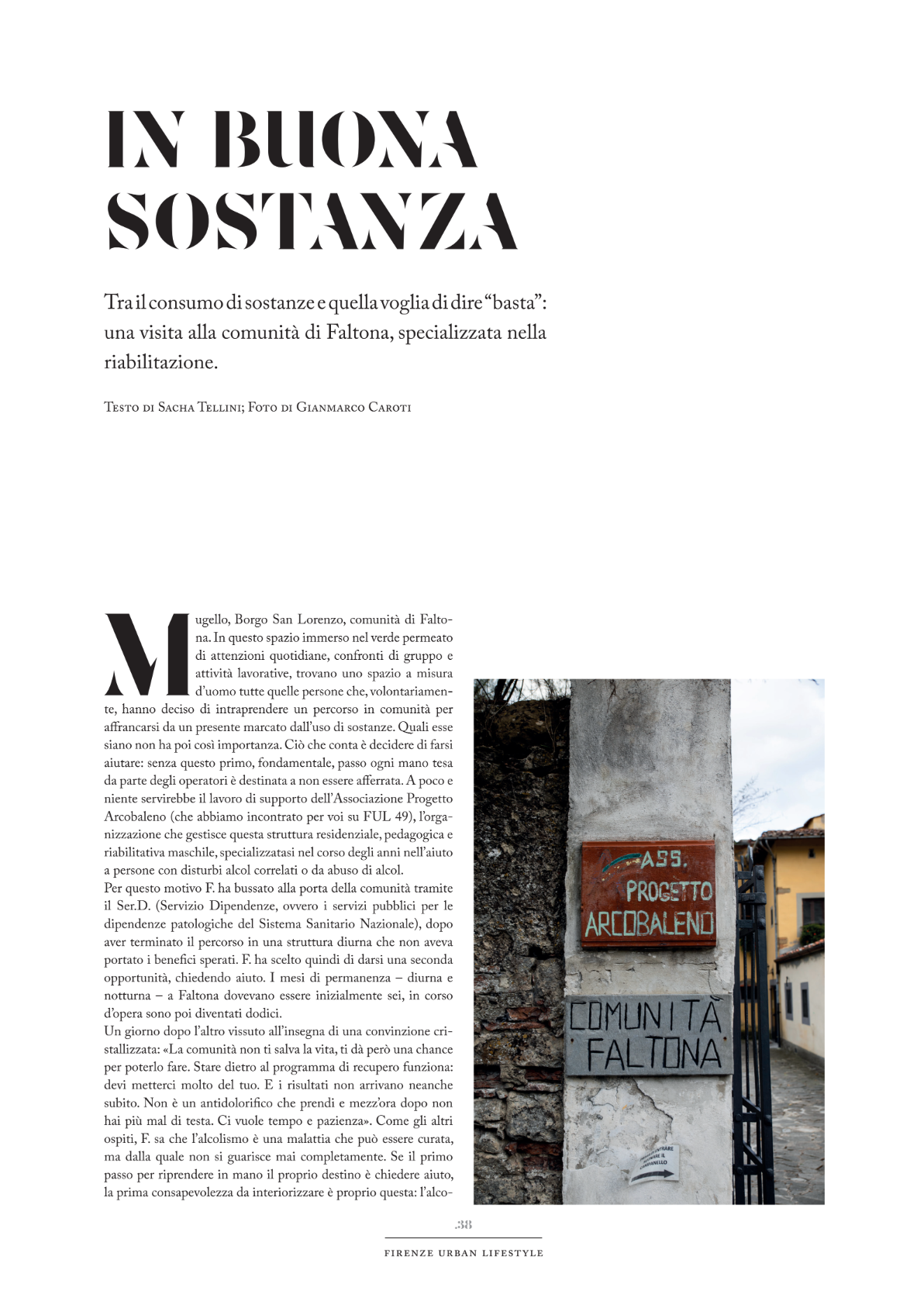
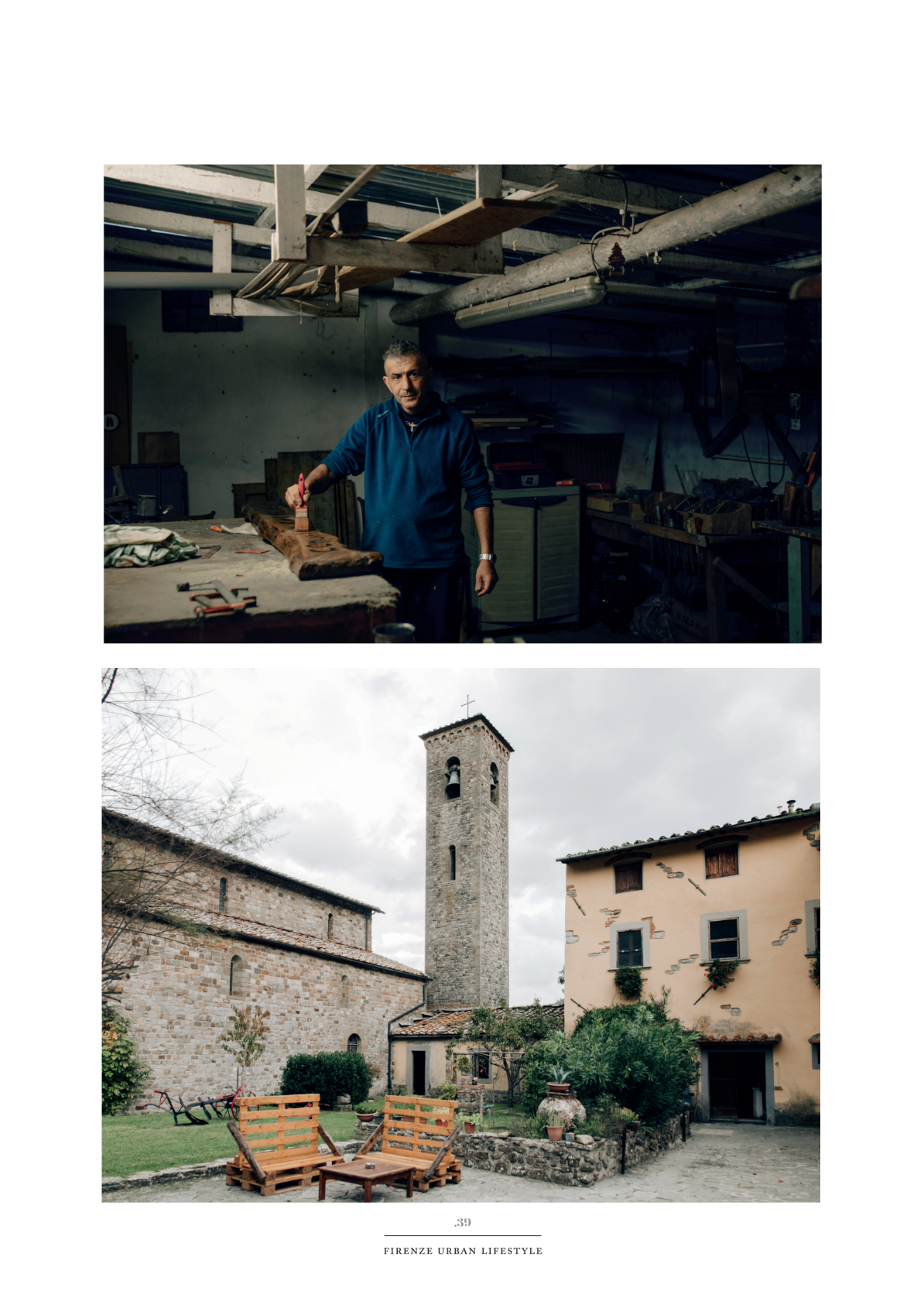
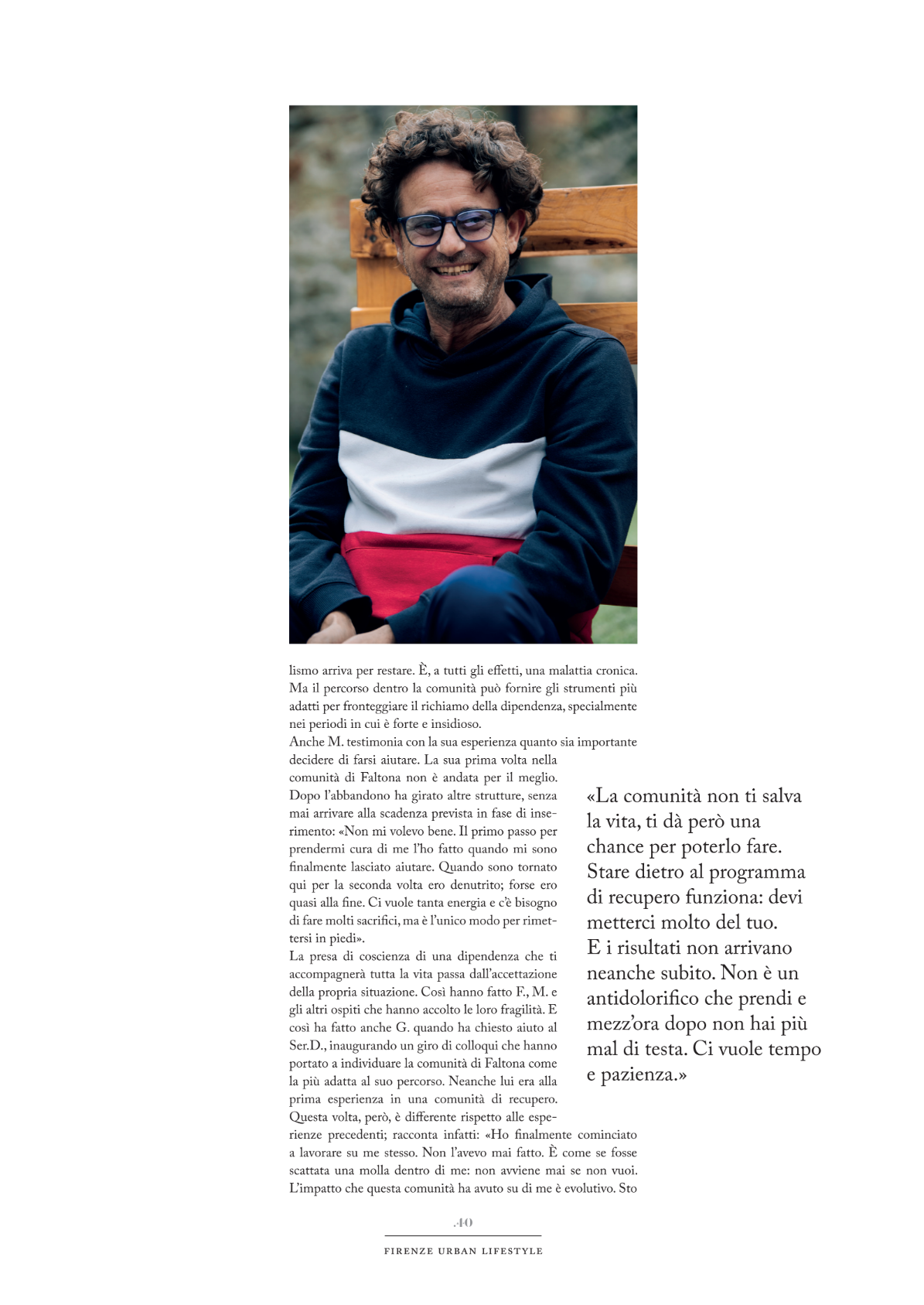
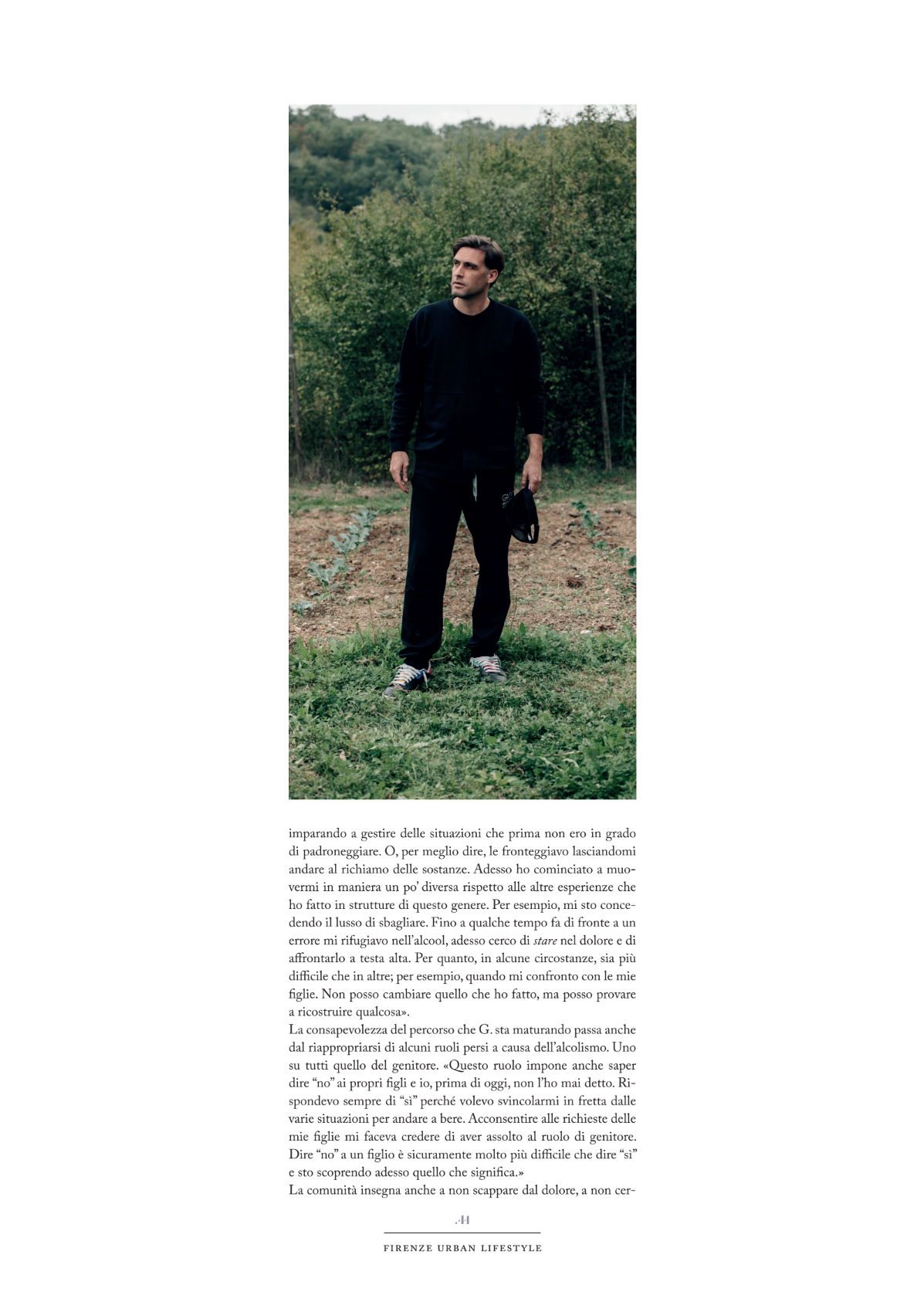
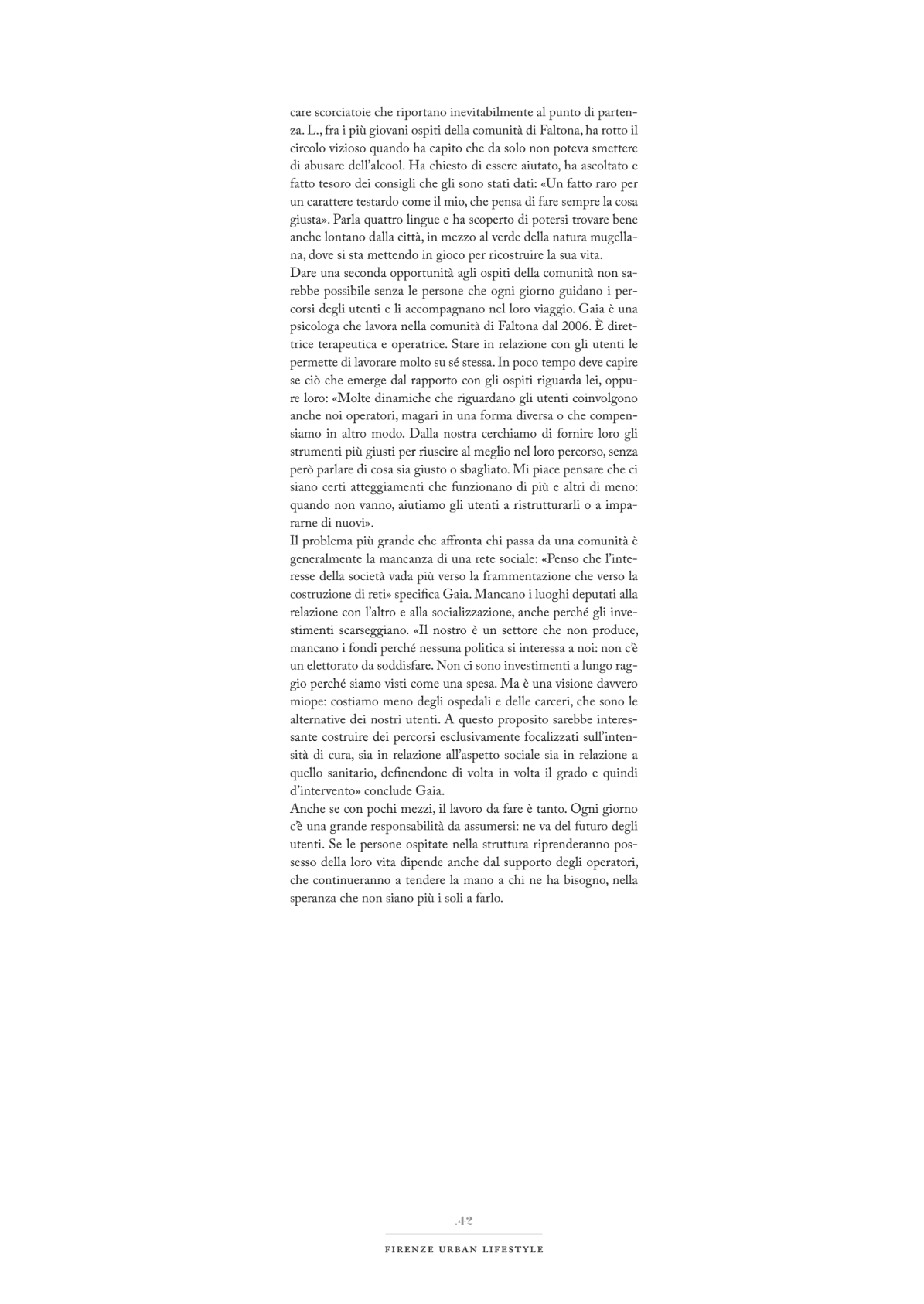
Documenting hope and rehabilitation at the Faltona therapeutic community in Mugello
A visit to the Faltona therapeutic community in Borgo San Lorenzo, Mugello, where individuals voluntarily embark on rehabilitation journeys to overcome substance dependency. This editorial assignment for Ful Magazine documents a space immersed in nature, filled with daily care, group confrontations, and work activities.
The photography sensitively captures the human-scale environment managed by Associazione Progetto Arcobaleno, specializing in helping people with alcohol-related disorders. Through intimate portraits and environmental documentation, the project explores themes of vulnerability, recovery, and the crucial decision to ask for help.





"The community doesn't save your life, but it gives you a chance to do it yourself. Following the recovery program works: you have to put a lot of yourself into it."
This assignment required documenting one of society's most challenging realities with sensitivity and respect. The Faltona community represents hope for individuals who have made the fundamental decision to ask for help - the crucial first step without which any extended hand remains ungrasped.
The photography explores the daily rhythms of recovery, the importance of structure, and the courage required to face pain without seeking shortcuts. Through portraits and environmental shots, the project captures both individual stories of transformation and the systemic challenges facing rehabilitation work in contemporary Italy.
"I've finally started working on myself. I never did that before. It's as if something clicked inside me: it never happens unless you want it to. Now I'm allowing myself the luxury of making mistakes."
The work highlights not only personal journeys of recovery but also the dedication of operators like Gaia, the therapeutic director, who emphasized: "We cost less than hospitals and prisons, which are the alternatives for our users. But we're seen as an expense rather than an investment."